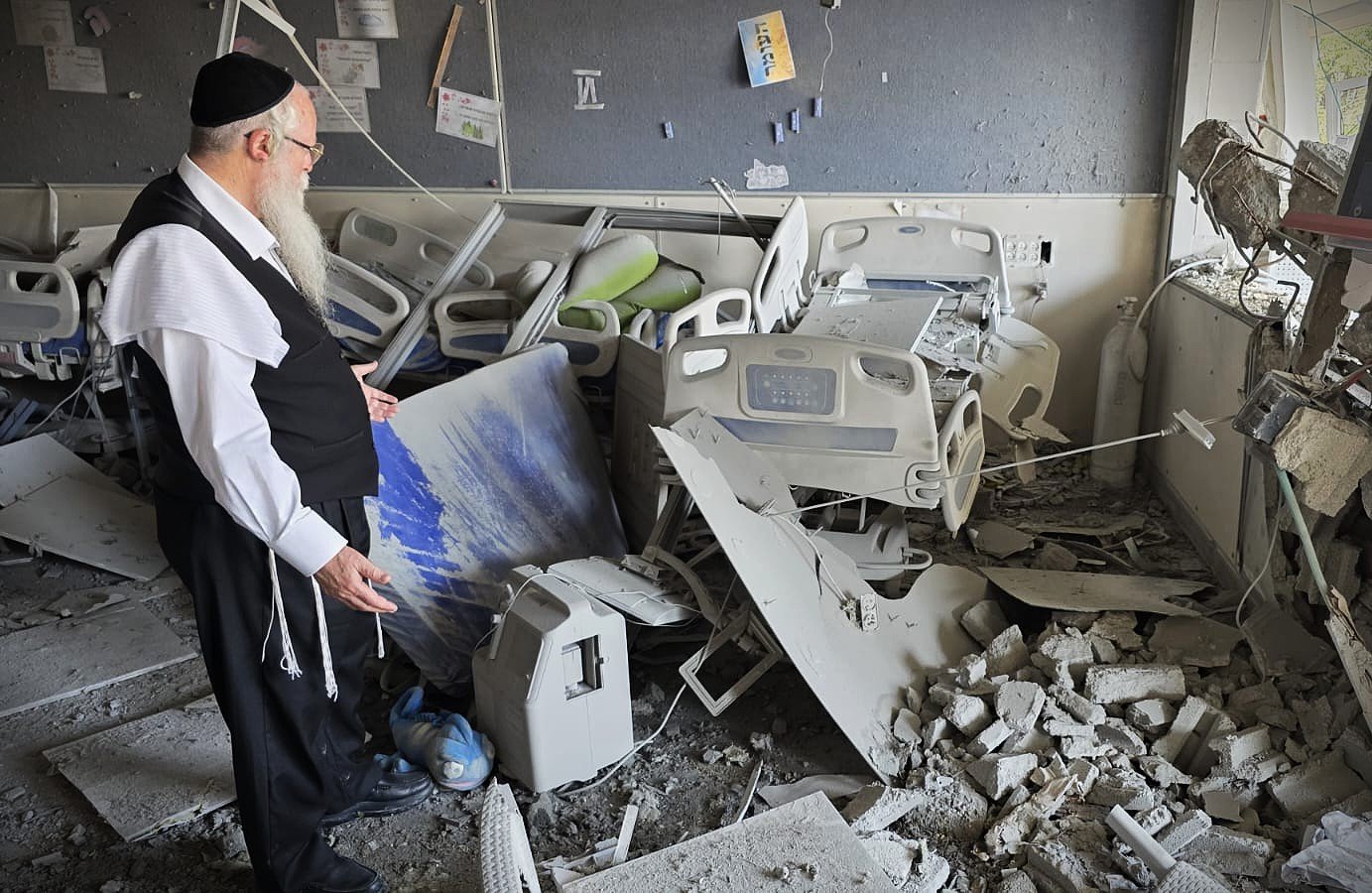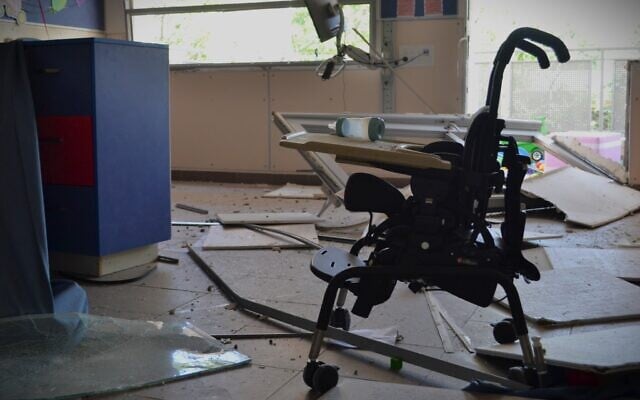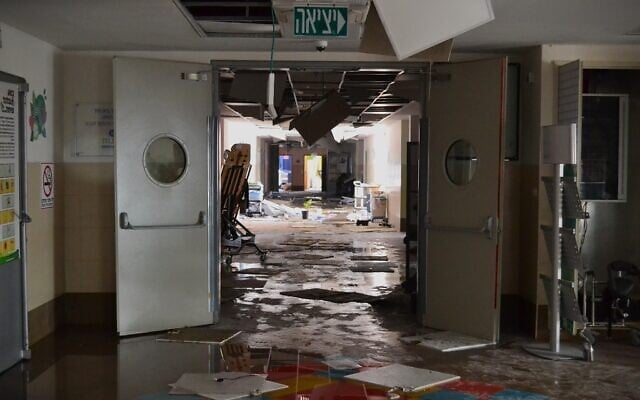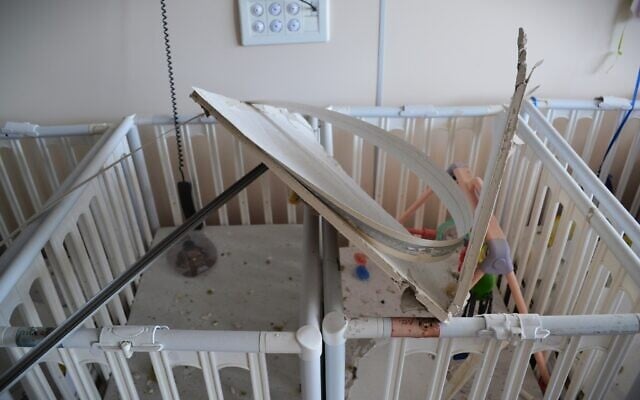



In the early hours of Monday morning, an Iranian missile slammed into Bnei Brak, striking a religious girls’ school and causing extensive collateral damage to the neighboring ALEH rehabilitative facility — a critical refuge for nearly 300 children and young adults with intellectual and physical disabilities.
Miraculously, no patients or staff were present when the missile hit. But the destruction left behind did more than reduce buildings to rubble — it upended the daily care of some of Israel’s most vulnerable residents.
The missile strike was part of a broader overnight barrage that targeted central and northern Israel, and killed eight people in total: one in Bnei Brak, four in Petah Tikva and three in Haifa.
ALEH’s Bnei Brak center near Tel Aviv — described as “Israel’s most advanced educational and therapeutic center for children and teens with severe disabilities” — had been a hub of innovation and compassion. It served patients from infancy through age 21 with mild to moderate disabilities, offering not just medical care and education, but an environment tailored to emotional well-being.
Founded in 1982 by Rabbi Yehuda Mamorstein, ALEH now operates a nationwide network that supports close to 1,000 patients. Its Bnei Brak facility boasted an array of specialized amenities: a digital database tracking each child’s meals, medications and emotional state; calming sensory installations like LED light displays and sound systems; and even waterbed therapy to simulate swimming for children unable or afraid to enter a pool.
But as Head of Cleaning, Security and Safety Operations Yechiel Yoskovich explained, ALEH’s real strength lies in its people.

“A child like this deserves the best… when a kid knows he’s loved, you can see it in his eyes, even if he can’t speak or move,” he said.
Today, with the center now unusable, those children have lost their safe haven.
The damage was extensive: A glass ceiling meant to bathe the building in natural light lay in shards across the floor. Burst pipes flooded entire sections of the building. Electricity was out, except at the front entrance. And nearly all of the center’s medical equipment — once integral to daily care — was destroyed.
“Everything, all the equipment, is out of service,” Mamorstein said.
Initial estimates place the cost of the damage between NIS 18 and 30 million ($5-8 million), but that figure is expected to rise as the full scope becomes clear.

According to Yoskovich, the situation could have been far worse. In the days prior to the strike, staff considered relocating patients from another facility to the Bnei Brak site due to its ample bomb shelters. That plan never came to fruition — a decision that most likely saved lives, as the facility was empty at the time of the impact.
In the aftermath, patients have no choice but to stay in their families’ homes, many of which lack the resources to support their specialized needs. ALEH has mobilized volunteers to provide essential services — feeding, bathing and physical therapy — in the meantime.
“My heart is with the families… What will they do tomorrow? Where will they go?” Mamorstein said.
His own journey began decades ago, when children with disabilities in Israel were often hidden away, institutionalized, or even sent abroad.
“People used to try and hide [disabled] people away — they didn’t even want to talk about them,” he recalled. “This issue touched my heart. That’s how I decided that I must deal with this baggage.”
Under Mamorstein’s leadership, ALEH has grown not only in scope but in its advocacy.
Mamorstein said that some 20 years ago, he helped pass legislation recognizing children with special needs from birth, granting families access to government support from day one. He continues to push for laws that protect and improve the lives of Israel’s disabled population.
“These children are people, too. They have rights… It’s not just about the patients, it’s also about the families,” he said.

Even as ALEH expanded its operations — including the development of a major campus in Ramle for older patients — it now finds itself forced to rebuild from the ground up, all while navigating the broader national crisis of war.
Standing amid the wreckage, Mamorstein’s resolve was undimmed. He is now turning to the broader Jewish community for help.
“My hope now is that the Jewish people, both in Israel and in the Diaspora, will help strengthen us,” he said. “This is a monumental incident that the Jewish people should unite behind. It doesn’t interest me who they vote for… The real question is: How can I help these children?”
